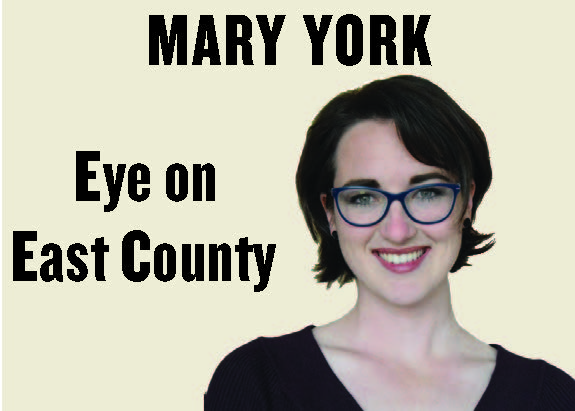“It’s a sneak peak viewing,” she said. “I can have some seats reserved.”
Here was an offer I wasn’t about to turn down: a special preview of a new documentary with reserve seating next to the associate producer.
A good friend since our high school speech and debate days, Nobeleen Alkhato has been on the production team of this film for the better part of two years and every time I have trekked up to Los Angeles to see her (or she has found an excuse to come down to San Diego) she’s given me the update.
And now, finally, the long-awaited text telling me the final product was ready.
“No Safe Spaces,” a documentary directed by Justin Folk and produced by Mark Joseph, is a call to arms. Featuring comedian Adam Carolla and political commentator Dennis Prager, it walks viewers step-by-step through the cultural wave of academia’s efforts to cut out what might be deemed as hate speech from campus discourse.
Though excited and fully prepared to support my friend in this enormous endeavor, I entered the Regal Parkway Plaza & IMAX theater in El Cajon with some trepidation. Nobeleen and I both grew up in a very conservative community, and while I still hold to many of the values imparted to me in childhood, I have seen the poor, ineffective and sometimes destructive ways in which those values have been communicated by the political right in this country. I was not sure what to expect from a movie about free speech.
The El Cajon theater is one of only a half dozen around the country where the movie will be released at the beginning of next month.
“If the numbers are good,” Nobeleen explained to me as the opening credits lit up the theater screen, “we can roll it out nationwide later.”
The first few minutes put me tentatively at ease. Carolla and Prager open the film by sharing a mic and talking to each other about their own unexpected friendship – one a conservative, highly educated Jewish man and the other a godless comedian with a degree in “tomfoolery.” Some cleverly done voice-overs set the tone for the production – although they clearly have something serious to say, they are not taking themselves too seriously.
It was not until halfway through the viewing that I found myself gripping my jacket sleeves. It happened slowly, but as Carolla and Prager walked viewers through their experiences on college campuses, and as other guests were brought on to share their experiences, it became evident that the issues of free speech are at a greater risk that we can lightly toss aside.
From the students at Evergreen State literally taking over a campus administration building with such force while holding a teacher against his will that campus police left the scene because it was too dangerous, the destruction of property during the Berkeley riots because, as one student put it, “if this is the only way to have our voice heard then this is what we have to do,” to issues at Yale and other prestigious institutions where dissenting views are not tolerated (first by the students and then by a cowering administration), each situation, and each from the last two or three years, was carefully walked through with commentators from multiple perspectives dropping their thoughts. It was informative. It was enlightening. But it was no worse than I suspected.
I am, afterall, still on a college campus myself. Many of my friends are college age, or at least part of this wave of Gen Xers and baby Millennials who, as Carolla puts it, have been raised in bubble wrap.
“Where are the adults?” Carolla asks during a clip in the film where he testifies before Congress. “These are 18 and 19 year old kids on college campuses. They grew up dipped in Purell. Studies have shown that if you put them in a zero gravity environment, like astronauts, they lose muscle mass and bone density… Our plan is to put them in a bubble and somehow they’ll come out stronger when they come out of the bubble. And that’s not happening. Children are the future but we are the present and we need to act like it. What’s going on on these campuses – we need law and order. And if we just had order, we wouldn’t need law. Could we just bring back order? Could the faculty and administration on these campuses just act like faculty and administration and, most importantly, like adults for these kids who need some gravity in their life.”
It might sound patronizing, but only minutes earlier in the documentary had been a recording of a teaching assistant being let go from the college for showing a clip on pronouns in her English class that was deemed potentially harmful and offensive.
“I don’t understand what I did wrong. These opinions are out there. They are going to run into them eventually,” the lecturer tearfully explains. “They are 18. They are adults.”
“Yes,” comes the voice of an uncomfortable administrator, “But they are very young adults. And we want to protect them.”
After hearing from a host of public figures – including Tim Allen, Jordan Peterson, Van Jones, Barack Obama and others – as well as from students and faculty at colleges where free speech is under attack, the film wraps up on a positive note.
This was important to me, the positivity. I tend to be suspicious of messages that invite us to be fearful. People make terrible decisions when they are scared, angry or hurt. I think that is part of what has put such a flame to the initial sparks behind the hate speech and free speech debate. I think if we could sit down with the young adults who are hijacking entire campuses and rationally walk them through the importance of free speech, maybe – maybe? – we could get somewhere.
But the college students behind the social justice meltdown of Evergreen State College were coming from a place of hurt – real or supposed, it makes to effective difference – and therefore were not listening. The videos of that episode make it very clear. They were not listening, nor did they intend to be listened to – they intended to be obeyed.
I know what it looks like when people of a certain belief stop up their ears and refuse to listen. But then, I didn’t just see that in my liberal college friends. Shouting over someone else, using platitudes rather than reason, personal insults, derogatory tones – uncivil discourse can be found on either side of the aisle.
Although I strongly encourage everyone to go see this movie when it comes out on Nov. 1, 2019 at the Regal Parkway Plaza & IMAX in El Cajon, I also hope that the film is not used as an excuse to join the party of the morally righteous.
Prager explains that he would rather have clarity than agreement. But to have clarity, both sides must understand each other. And to understand, we must listen, even if we don’t like what we are hearing.
As I watched the video of kids decrying hate speech at Evergreen College, I recognized them. They look like many of my friends and I can easily put myself in their shoes. There are wounds in the LGBTQ community. There are wounds in the black community. There is hurt – real and imagined – across the scene, and if we intend to make progress, we have to patiently sit down and try to understand it. If logic and reason are the final stride that helps us leave this mess, empathy and understanding must be our first step.
“This trumps LGBT,” Carolla said of free speech. “This trumps Chicano, this trumps black, this trumps Trump.”
And he’s right. Free speech is the quintessential American value, the basis for the survival of both freedom and hope. But it will do nothing if it is employed against stopped up ears, so let us be neither silent nor deaf.














